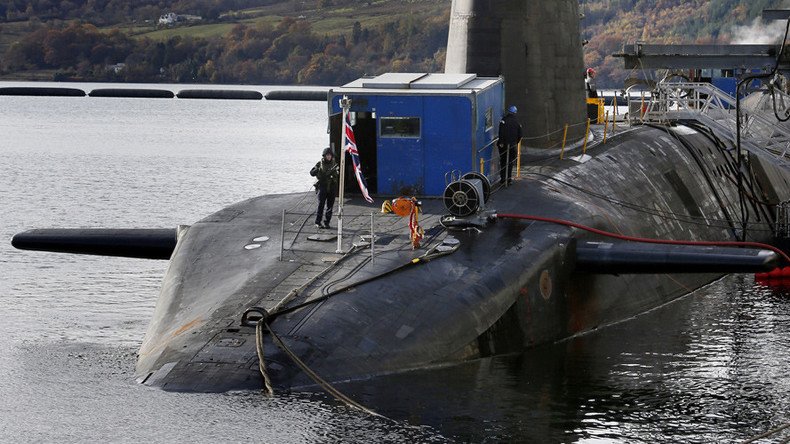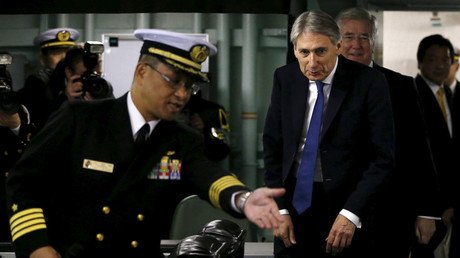ISIS threat makes nuclear weapons more popular, poll reveals

Maintaining Britain’s arsenal of nuclear weapons has won greater public support in the last year in response to the rise of Islamic State (IS, formerly ISIS/ISIL), pollster Orb International claims.
In a study commissioned by the Independent newspaper and published on Monday, researchers claim “the rise of ISIS and an increase in the security threat back home may well have turned the tide a little.”
The poll also shows a Britain narrowly split on the issue of Trident nuclear missiles, with a 1 percent majority backing full renewal. The majority of Scots, meanwhile, are firmly against such a move.
Fifty-one percent of those polled back renewal, while 49 percent are against renewal or favor non-nuclear armed submarines.
Labour Party leader Jeremy Corbyn’s claim that submarines could continue to patrol without Trident warheads on-board won the support of 29 percent.
Twenty percent of the 2,000 people polled opposed renewal entirely.
On Thursday, Defence Secretary Michael Fallon said nuclear weapons are vital to offset the threat of terrorism.
“Daesh [Islamic State] are a terrorist organization but we can’t rule out the possibility that a state in the future might slip nuclear weapons to a non-state actor,” Fallon told the Times.
“We needed [the nuclear deterrent] in the Cold War but we need it even more now in a more unpredictable and dangerous world … we cannot be sure where the nuclear threats will materialize in the 2030s, 2040s and 2050s.”
Dismissing lifelong anti-nuclear activist Jeremy Corbyn’s call to keep the submarines but scrap their weapons, Fallon warned such patrols would be pointless.
“If Labour maintains this position, they are clearly a threat to national security. It means we would be less safe under a Labour government. It is extremely dangerous. It is like making imitation rifles,” he said.
However, anti-nuclear feeling is by no means the sole preserve of the anti-war movement in the UK.
In an interview with RT’s Going Underground in July 2015, retired general Patrick Cordingley said: “From a military point of view we don’t need nuclear weapons, it’s got absolutely no military value at all.”
Debate about the efficacy of nuclear weapons in modern strategy, as well as their associated risks, is also increasingly being aired on the international stage.
Indian minister of state for defense, Rao Inderjit Singh, warned in May 2015 that IS could acquire a nuclear weapon through Pakistan.
“With the rise of ISIS in West Asia, one is afraid to an extent that perhaps they might get access to a nuclear arsenal from states like Pakistan,” he told Bloomberg.
Questions remain about the usefulness of nuclear weapons in fighting international terrorism, though in December 2015 Russian President Vladimir Putin also pointed out his country’s new missiles could carry both nuclear and conventional warheads.
“Naturally, we do not need that in fighting terrorists, and I hope we will never need it,” he said.
Foreign Minister Sergey Lavrov later talked down any suggestion that the weapons would be used against targets in Iraq or Syria, AP reports.
“There is no need to use any nuclear weapons against terrorists, as they can be defeated through conventional means,” said Lavrov.













